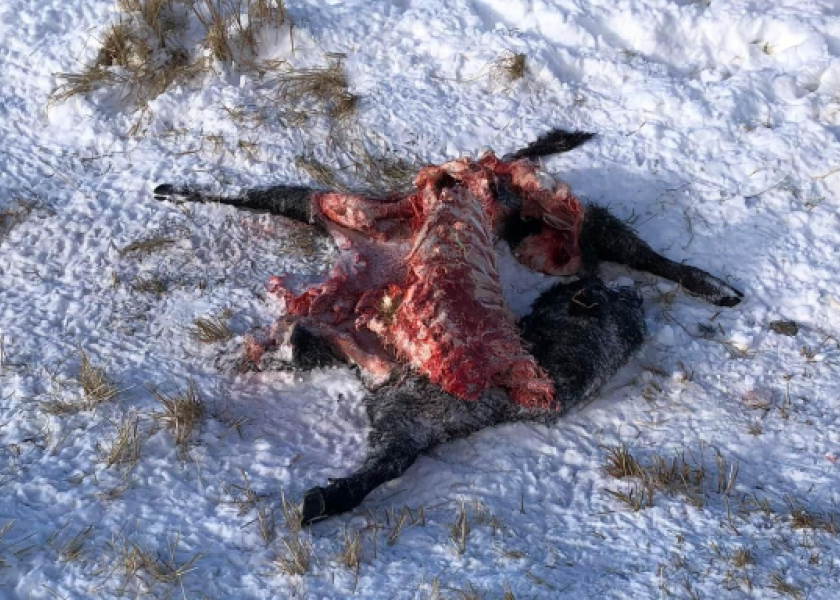Colorado's First Wolf Kill in Decades

A confirmed wolf kill was discovered near Walden, Colo., the home of one of Colorado’s wolf packs. An approximately 500lbs purebred replacement heifer was found dead after being attacked and eaten by this pack of wolves. This is the first confirmed wolf kill of livestock in Colorado in over 70 years.
In early 2021, Colorado Parks and Wildlife confirmed the existence of this pack in north central Colorado; however, individual wolves have been sited in the area previous to the pack confirmation. Colorado Parks and Wildlife officials are working closely with the livestock producer to learn as much from this situation as possible as a mechanism to better inform Colorado’s current Wolf Restoration and Management Plan.
“On behalf of the livestock producer, who is a member of the Colorado Cattlemen’s Association (CCA), as well as Colorado Parks and Wildlife, we ask that the public refrain from disturbing the area and individuals associated with this wolf attack,” said Steve Wooten, CCA President.
While unfortunate, this wolf kill further brings to light issues that must be addressed by the Wolf Restoration and Management Plan, specifically:
• Lethal and non-lethal methods, including hazing, of wolves for conflict minimization.
• A guaranteed funding source that allows Colorado Parks and Wildlife to fairly provide the needed tools for prevention and compensation from wolf impacts.
• Impacts from wolves go beyond livestock death and injury, to include more far-reaching impacts on livestock performance, such as loss of pregnancy, weight loss, imbalanced range usage, etc.
A strongly encourages the members of the Wolf Restoration and Management Plan working groups and the Colorado Parks and Wildlife Commission to consider this wolf attack and the widespread impacts as a sentinel example of how livestock can be impacted by wolf introduction.







